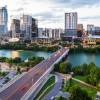
The Urban Sun Belt: An Overview
This report documents the unique set of urban challenges Sun Belt Cities face.

The Urban Sun Belt: An Overview
This report documents the unique set of urban challenges Sun Belt Cities face.
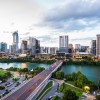
Large, young and fast-growing Sun Belt metros need urban policy innovation
Large cities of the Sun Belt are getting bigger and younger faster than metro areas in other parts of the country. They also face a combination of challenges unlike those metros in other regions; however, American urban policy as we know it was created for traditional Northeastern and Midwestern cities.

They were studying urban inequalities when a pandemic that worsens disparities hit
When colleges and universities moved to online classes in response to the coronavirus pandemic, student fellows in the Kinder Institute’s Community Bridges program pivoted as well, turning their focus to the relationship between COVID-19 and inequality.
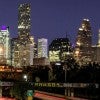
This report examines the revenue structure and service levels for Texas' three largest cities: Houston, San Antonio and Dallas.
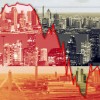
4 things limiting Houston’s ability to generate more revenue
Houston lost $25 million in sales tax revenue in March alone because of COVID-19. But the city’s fiscal struggles existed before the coronavirus pandemic. A new Kinder Institute report compares the revenue sources and service levels among the three largest cities in Texas — Houston, Dallas and San Antonio — all of which are expected to see COVID-19-related revenue losses of between 10 and 15%. Of the three, Houston is the most constrained in its options for increasing revenue.

If you’re lucky enough to work from home, where will home be after the pandemic?
The COVID-19 crisis forced many companies to quickly transition to work from home. Now, as the economy continues to open up, businesses have to decide if they’ll go back to the onsite world of the old normal or continue with the remote-work model of the new normal. Employees of companies that choose the latter will have more options for where they live and office, including the Urban Hotel, the Suburban Workshop and the Exurban Metropolis.
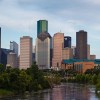
How Houston can reinvent itself and be bigger and better
As the city faces an economic crisis brought by the coronavirus pandemic and the downturn in oil, it needs to recognize the enormous opportunity to make changes that are necessary to become a leading 21st-century city.

Kinder Houston Area Survey: 2020 Results
For close to four decades, the Kinder Houston Area Survey has been tracking the changing attitudes and experiences of Houstonians.

Snapshot taken of Houston just before pandemic shows the inequalities COVID-19 would exploit
Interviews for the 2020 Kinder Houston Area Survey were conducted just before the world was upended. The results of the survey reflect the existing disparities in health care and economics that the COVID-19 outbreak has underscored and exacerbated.

Could parklets help Houston restaurants recover from the pandemic?
As restaurants in Houston reopen and expand beyond to-go and delivery service, they’re required to provide more space between diners. In a number of cities, steps are being taken to allow businesses like restaurants to temporarily use outdoor space and parking lots to help with adequate physical distancing.
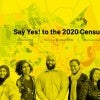
Urban Edge explains: The decennial census and why it’s more important than ever
For those who haven’t completed the ongoing 2020 Census, an important reason to respond online, by phone or by mail to the nine-question survey is the neighbor next door, two doors down or down the street.
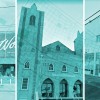
Taking residents on a data walk to democratize community research findings
Through workshops, community feedback and an interactive data walk, a Houston Community Data Connections team empowered Third Ward community members and other stakeholders to use data from a multi-phase comprehensive needs assessment to pursue priorities in the neighborhood.

Post-coronavirus economic recovery in Houston and Texas requires bold planning
Kinder Institute senior fellow and former Harris County Judge Ed Emmett sees three major challenges that need to be addressed as Texas begins the task of tackling its economic recovery from the COVID-19 pandemic.
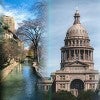
In post-pandemic Texas, the state’s cities will be more important than ever
Some 80% of Texas’ 29 million residents live in large cities or metropolitan areas, which are the economic drivers in the state. If the recovery is going to be successful after the COVID-19 pandemic ends, it’s important that preparations begin now.

Can Texas afford to lose its housing affordability advantage?
Long known as a place where everything except the cost of living is big, the state seems to be losing its edge in the area of home prices — especially in its large metros. Continuing in that direction could lead to trouble down the road.
Rice University
Kraft Hall
6100 Main Street, Suite 305
Houston, TX 77005-1892